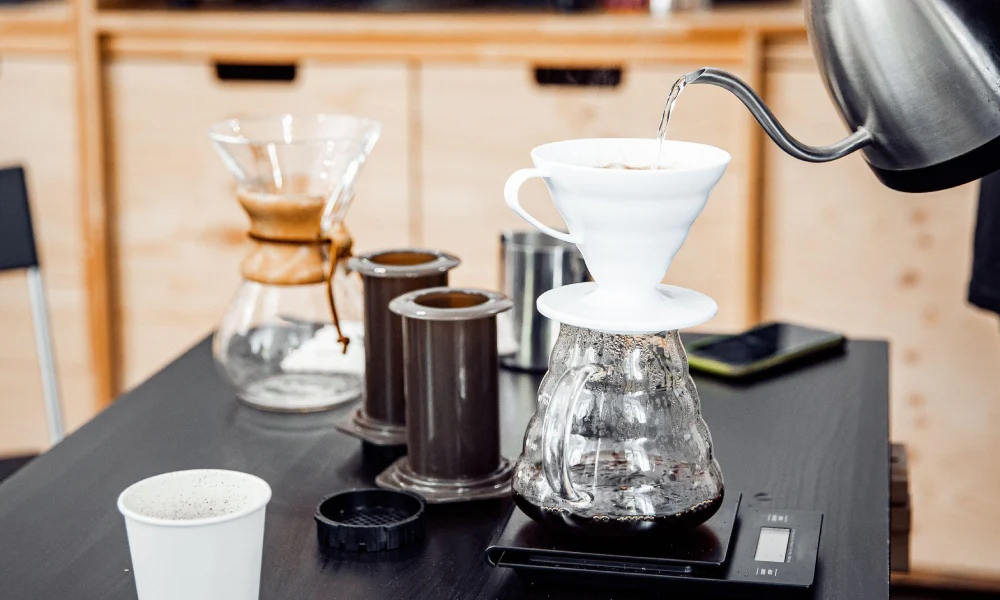The UK coffee scene is booming, with a diverse range of independent cafés, high-street chains, and online retailers vying for a share of the market. For entrepreneurs and businesses looking to enter this thriving industry, the choice between white label coffee and private label coffee can be a crucial deciding factor in their success. Both options offer a convenient way to launch a coffee brand, but they differ significantly in terms of customisation, control, and branding opportunities.
White Label Coffee: The Quick Start
White label coffee involves sourcing pre-existing coffee blends from a roaster and rebranding them as your own. It’s essentially a ready-made solution that allows you to quickly enter the market with minimal upfront investment.
Pros:
- Speed and Convenience: You can launch your coffee brand quickly without the need for recipe development or sourcing beans.
- Lower Costs: White label coffee generally has lower initial costs compared to private label, as you’re not investing in custom blends or unique packaging.
- Reduced Risk: You’re leveraging an existing product with a proven track record, minimising the risk of product failure.
Cons:
- Limited Customisation: You have little control over the coffee blend, roast profile, or packaging.
- Brand Differentiation: It can be challenging to stand out from the competition with a generic product.
- Potential for Price Wars: Since other businesses may be selling the same white label coffee, you might face price competition.

Private Label Coffee: The Bespoke Brew
Private label coffee offers a higher degree of control and customisation. You work closely with a roaster to develop unique coffee blends, choose your preferred roast profiles, and design bespoke packaging that reflects your brand identity.
Pros:
- Unique Brand Identity: Create a coffee that truly represents your brand and resonates with your target audience.
- Quality Control: Source your preferred coffee beans and ensure they meet your ethical and quality standards.
- Higher Profit Margins: Private label coffee often commands higher prices, leading to better profit margins.
- Greater Flexibility: Adapt your coffee offerings to evolving consumer preferences and market trends.
Cons:
- Higher Initial Investment: Private label coffee requires a greater upfront investment in recipe development, sourcing, and custom packaging.
- Longer Lead Times: Developing a unique coffee blend and packaging can take longer compared to white label.
- Greater Responsibility: You’re responsible for quality control, branding, and marketing your private label coffee.
Which is Right for Your UK Business?
The choice between white label and private label coffee depends on your specific business goals, budget, and long-term vision. Consider these factors:
- Brand Identity: If building a strong, unique brand is crucial, private label offers greater control and customisation.
- Target Market: Understand your target audience’s preferences and tailor your coffee offering accordingly.
- Budget: White label is a more budget-friendly option for start-ups or businesses with limited resources.
- Competition: In a competitive market, private label coffee can help you differentiate your brand and stand out.
- Distribution Channels: Consider your distribution strategy (online, wholesale, retail) and choose the option that best suits your needs.
The UK Context
In the UK, consumer demand for speciality coffee and unique flavour profiles is on the rise. This trend favours private label coffee, allowing businesses to cater to niche markets and offer bespoke coffee experiences. However, white label coffee can still be a viable option for businesses seeking a quick and cost-effective entry into the market.
Whether you choose private label or white label coffee, careful planning and a strong understanding of the UK coffee market are essential for success. By weighing the pros and cons of each option and aligning your choice with your business goals, you can brew up a winning coffee brand that resonates with UK consumers.




